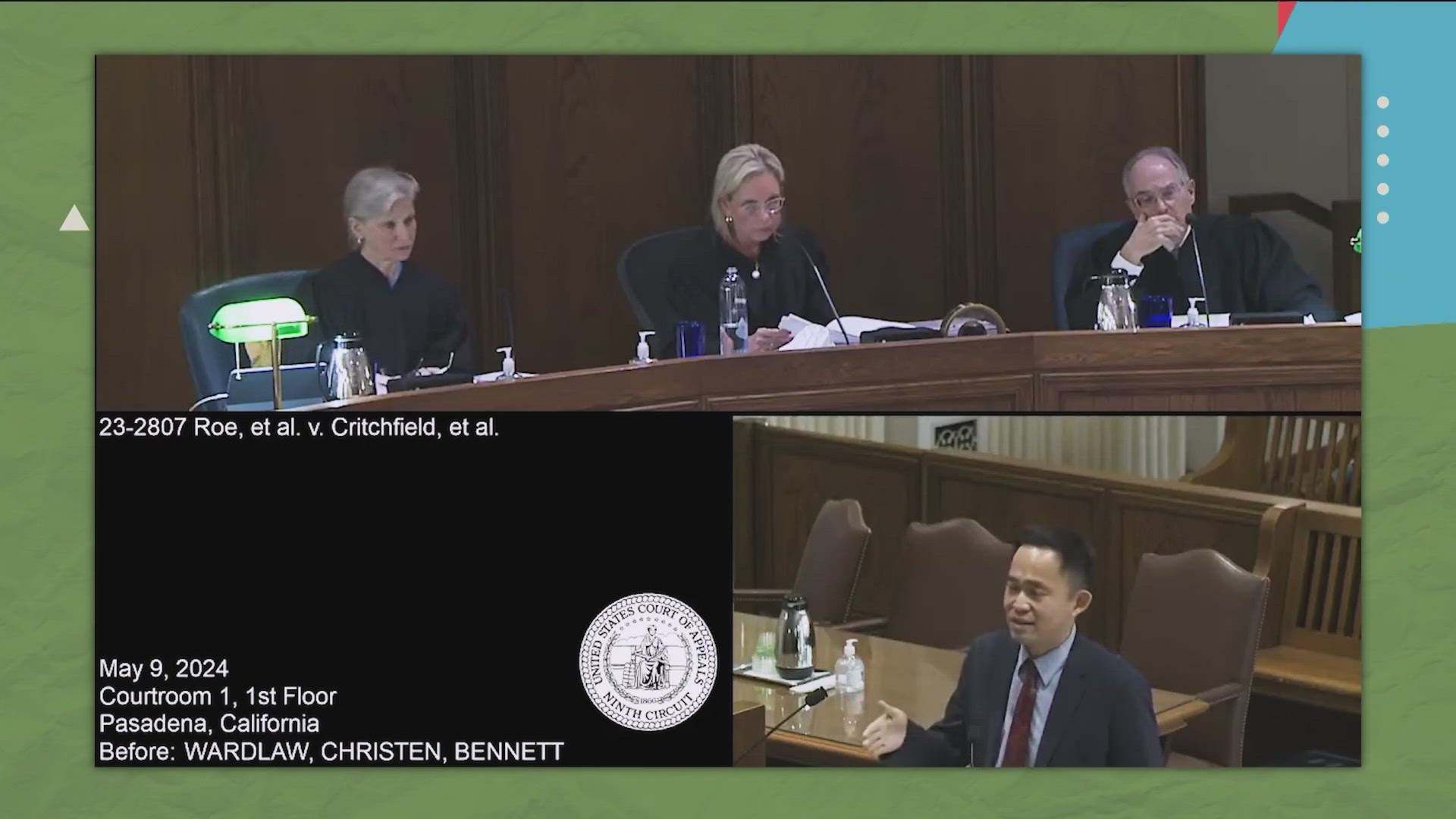BOISE, Idaho — This story first appeared in the Idaho Press.
Republican Senate leaders are trying to call the Legislature back in session to establish a May presidential primary — unless the party decides to hold a caucus instead.
Another bill to put in place a primary, but in March, is also being circulated by a north Idaho lawmaker.
Because the Legislature seemingly inadvertently eliminated a presidential primary in an attempt to move the election to May, the Idaho Republican Party approved a caucus process if a March primary isn’t reinstated by the Legislature, the Idaho Capital Sun reported in June.
The caucus requires voters to attend in person at consolidated locations during events that may last hours, which has prompted concerns from some lawmakers.
Leaders in the Idaho Senate are circulating draft legislation to create a presidential primary in May, however parties would still have the option to hold a caucus instead at their own expense.
Leaders in the Idaho Senate are circulating draft legislation to create a presidential primary in May,
“We really think it’s important to put a primary in place should they choose not to hold a caucus,” Senate Assistant Majority Leader Abby Lee, R-Fruitland, said. “It’s an either/or, as it always has been.”
Previously, Idaho’s presidential primary was held in March. Lawmakers introduced legislation this year to move the election to May, estimating that consolidating the election would save the state up to $2.7 million.
The bill, HB 138, passed 61-6 in the House and 23-11 in the Senate. However, the way the legislation was written actually eliminated the primary, so a trailer bill was introduced to fix the issue. The trailer passed through the Senate but died in a House committee.
Idaho GOP Chairwoman Dorothy Moon spoke in opposition to both bills, arguing that the election should not be moved to May. She also wrote to Republican lawmakers urging them not to move the primary, public records show.
“We must maintain our March Presidential Primary to ensure candidates vying for our party’s nomination respect our voters and prioritize the issues central to Idaho’s people, industries, and unique natural resource concerns,” Moon and other party leaders wrote in a March 2 email. “In short, moving the primary to a late date in the nominating process will render Idaho’s Republican voters irrelevant and limit the ability of our voters to advocate for our state’s interests.”
Lee said leaders in the Senate feel strongly that the election be held in May.
“I can appreciate that the party has a preference for the March primary, but that argument really falls flat for me when we took away the school bond elections for March,” Lee said.
The Legislature’s bill that was aimed at reducing property taxes also eliminated school districts’ ability to run bond or levy elections in March.
Sen. Scott Herndon, R-Sagle, also announced he started a petition to go back into session to consider his draft legislation, which would re-establish the March presidential primary.
“By the time of a late May presidential primary, most races are already won, and Idaho’s voters’ selections are irrelevant,” a press release from Herndon and the Idaho Freedom Caucus said.
Senate Pro Tempore Chuck Winder sent a letter to members urging them to support his legislation, making the case for both a primary over a caucus and the May date.
He argued consolidating the presidential primary with the May primary elections will “foster greater voter turnout for both presidential and down-ticket races” and that it would save taxpayer money.
The letter also included concerns for using a caucus, including the fact that it is challenging to organize and would create hurdles because of the requirement that voters attend in-person. The letter noted those in the military serving out-of-state, on missions, who are bed-ridden, are single parents, and others would likely not be able to participate.
“We remain steadfast in our belief that it is our duty to provide every Idahoan the opportunity to have their voice heard and their vote counted,” Winder said in a press release. “We urge our colleagues in the House to support this initiative and work towards improving our democratic processes while also saving taxpayer dollars.”
Senate Minority Leader Melissa Wintrow, D-Boise, said it’s “important to rectify the error that was made” during the regular session. She also shares the concerns of many of her colleagues about caucuses, which she called “outdated.”
“The primary election increases access for the voters,” Wintrow said.
She said the Democrats supported the trailer bill during the regular session and continue to support Senate leadership’s current proposal.
If the Legislature calls itself back into session, it would mark the first time it has done so since voters approved a constitutional amendment granting lawmakers this power — previously, only the governor could call a special session.
To come back to the Capitol and address the primary issue, 60% of both the Senate and House will need to agree to the special session.
Lee said leaders are in the beginning stages of circulating a petition to senators. If they receive at least 60% of responses in favor, then they will pass it along to the House to do the same.
While there’s no target date for the special session yet, Lee said the state’s party is facing an Oct. 1 deadline to notify the Republican National Committee whether it plans to hold a caucus or primary to select its nominee.
Watch more Local News:
See the latest news from around the Treasure Valley and the Gem State in our YouTube playlist:



